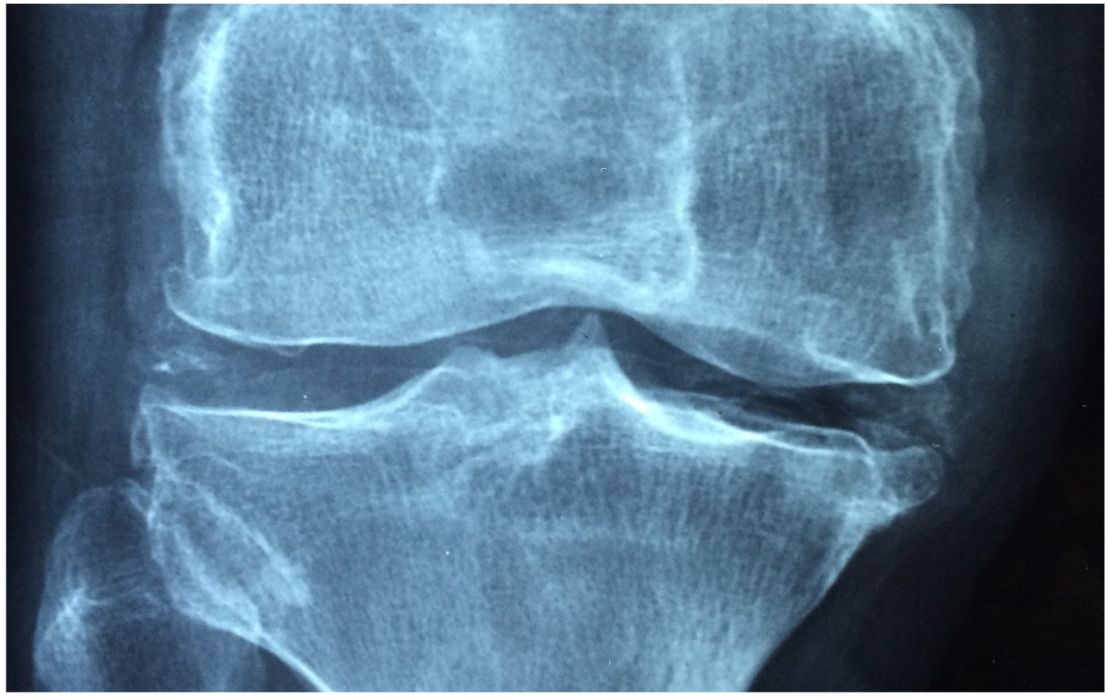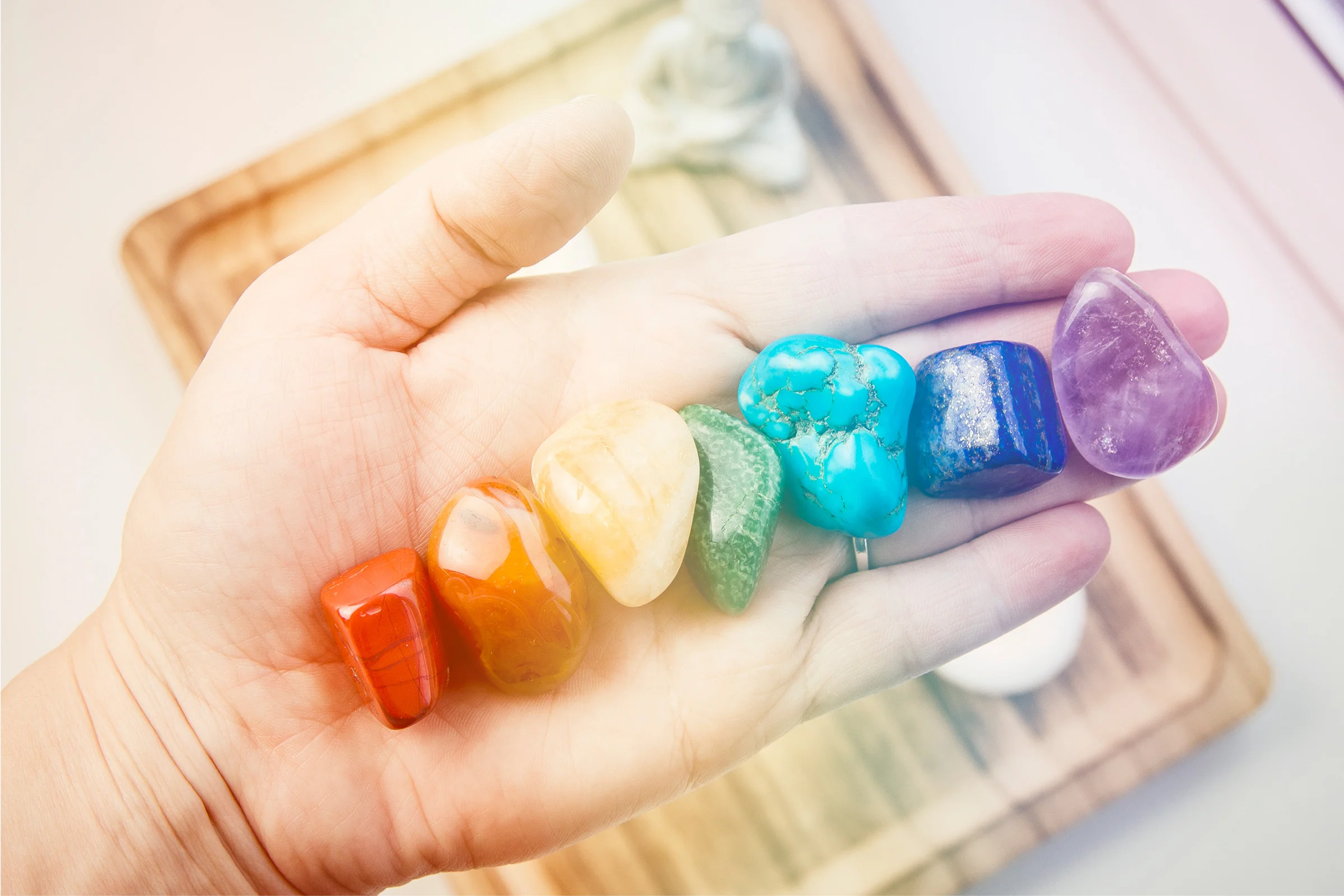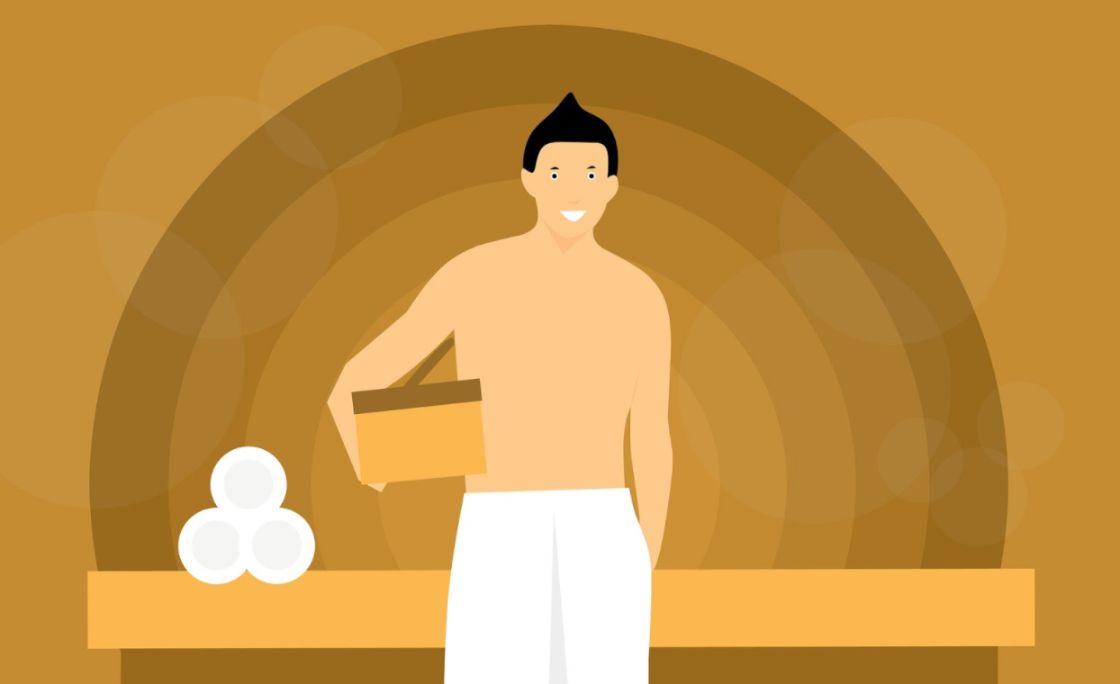It is supposed to happen every night.
Unfortunately, it is happening for everyone else. What is it? Sleep.
Do not worry, because you just found your secret weapons for getting a good night’s sleep with these 19 natural sleep aid tips.
You have many options to get a good night’s sleep.
For instance, smelling certain fragrances is one of the sleep remedies you can use.
Place a drop of jasmine oil on both of your wrists before bed.
Smelling the jasmine oil creates a sense of drowsiness.
You also can put a dab of jasmine oil on your forehead if you tend to sleep with your wrists away from your face.
You also can try traditional remedies, such as mindfulness meditation, acupuncture and listening to music.
You also can try skipping the spicy foods that cause indigestion during nighttime hours.
What is Insomnia?
Sleep is the way our body relaxes, rejuvenates and gets ready for the new day.
One night of no sleep can cause you to feel tired or irritable.
Another night can make it even worse.
A series of such nights is a medical condition called insomnia.
Insomnia is a sleep disorder that prevents you from falling and/or staying asleep.
If you have insomnia, you may have the following symptoms:
- Constantly waking up during the night and have trouble returning to sleep
- Difficulty falling asleep
- Going to sleep, but feeling tired upon waking up
- Waking up too early in the morning
You may not know this, but there are two types of insomnia: primary and secondary.
Primary insomnia is difficulty sleeping that does not involve any medical condition.
Secondary insomnia involves sleeping problems associated with a medical condition, such as depression, asthma, arthritis, heartburn and cancer.
Pain and alcohol consumption also can cause insomnia.
Insomnia may be Acute, Transient or Chronic
When you cannot sleep, you may not care if your insomnia is long-term or short-term.
However, it is an empowering fact to know.
Insomnia can vary in how long it lasts and the number of times it occurs.
For example, you can develop transient insomnia if you have some major change in your life.
It lasts for less than a week, or until the stressful event is resolved.
The event could be travel, work-related, or an extreme change in climate.
It does not have to involve a terrible event.
You could develop transient insomnia because you cannot wait for a happy event to happen.
If your insomnia comes and goes, you may have acute insomnia.
Acute insomnia is short-term.
You have periods of time when you have no sleep problems.
Short-term insomnia can last from one night to three weeks. Acute insomnia occurs when there is:
- An illness
- A significant life stress, such as a loss of employment, death of a loved one, or divorce
- An emotional issue
- Interference with your normal sleep schedule
- Physical discomfort
- An environment not conducive to sleeping, such as too much light, too much noise, or a rom that is too warm or cold
Chronic insomnia is difficulty sleeping and/or staying asleep.
It happens for a longer period of time a month or longer. Chronic insomnia symptoms include, but are not limited to:
- Anxiety
- Depression
- Discomfort
- Pain
Insomnia is more than lack of sleep or difficulty staying asleep
You have difficulty falling and/or staying asleep.
At first you were super tired.
Now you are experiencing other symptoms.
These symptoms include:
- Lack of concentration
- Memory problems
- Falling asleep during the day
- Irritability
- Tiredness all the time
Untreated insomnia can lead to anxiety and depression.
In addition, you can develop congestive heart failure.
You are more likely than someone who has had plenty of sleep to have an accident on the job or while driving.
You also are more likely to either miss work or get less accomplished at work than your co-workers.
Natural Sleep Aids to Help You Finally Get a Good Night’s Sleep
Pharmacy shelves are stocked full of pills and liquids claiming to help you get a good night’s sleep.
These “cures” have a couple of problems.
They will not help you with long-term or chronic insomnia.
Also they can do more harm than good.
They are not intended to treat long-term sleeplessness.
The following are some sleep remedies that do not involve medication and are completely natural:
Exercise about Four to Five Hours Prior to Bedtime
You have a lot of things to do during the day.
However, try sneaking in time to exercise four to five hours before bedtime.
Exercising on a regular basis will help you get a good night’s sleep.
You may think it will give you too much energy prior to bedtime.
You will have more energy, but will be more relaxed after your cool-down.
Once your body recovers from exercising, you will fall asleep more easily.
Never exercise just before bedtime. It will keep you awake.
You do not have to lift weights.
You want a routine that works your entire body, such as running, walking in place, or taking a walk outside.
Exercise for about 20 to 30 minutes. Do not try to overdo it.
Take an Aromatic Bath
You may not think sitting in a tub of water will give you a good night’s sleep, but it will. Take a hot bath at least two hours prior to bedtime.
The water temperature should range from 98 to 100 degrees Fahrenheit (36.6 to 37.7 degrees Celsius).
You should have the temperature no higher than about 112 degrees (44.4 degrees Celsius).
Before getting into the bathtub, add three drops of ylang-ylang oil and five drops of lavender oil to the water.
The next thing you must do after getting into the water is relax.
You can let your mind wander and enjoy the lavender and ylang-ylang oils for about 90 minutes to two hours.
If you cannot afford to spend that long in the bathtub, enjoy bath time as long as you can.
You do not want to take a bath just before bedtime. You want to give your body time to relax and get ready for bed.
Make a Lavender Sleep Pouch
If you only have a shower in your home, or you absolutely hate taking baths (you do not need to elaborate on the latter), make a lavender sleep pouch.
This is another type of natural aromatherapy sleep aid.
A lot of studies have examined the lavender scent.
The research shows smelling lavender makes you drowsier than smelling other scents.
Place some lavender in a pouch and place it under your pillow.
You also can place it on your nightstand next to your bed.
The point of the pouch is helping you relax and drift off to sleep.
You want to keep the pouch close to you to really get the full effect of the scent.
Do not overwhelm yourself with the scent.
Only place enough lavender in the pouch to make sure you can enjoy the scent and relax.
If you do not want to make a pouch filled with lavender, you can spray lavender on your pillow.
Enjoy a Slice of Thanksgiving
In the United States, nothing goes better than giving thanks, football and turkey.
You can eliminate the first two and eat a slice of turkey before bedtime.
Foods such as turkey, and even chicken, have a healthy amount of tryptophan.
Tryptophan is an amino acid used to trigger serotonin secretion.
Enough serotonin will make you fall asleep faster than any over-the-counter sleep aid.
That is why you or your loved one always falls asleep after Thanksgiving dinner.
If you do not like eating turkey, you can try chicken instead.
Only go to Sleep when You are Tired
If you have acute insomnia and wake up in the middle of the night, leave the room and engage in a calming activity.
Only return to bed when you actually are feeling sleepy.
This will help you fall back to sleep.
Waking up and staying in bed only makes the situation worse.
You stare at the ceiling or clock or you watch TV.
This hinders you from falling back to sleep.
In fact, the more you try forcing yourself back to sleep, the more it will not happen.
You will make yourself tenser and decrease your ability to fall asleep.
If you are sleepy, return to bed, then wake up, do not stay there.
Get up and do another calming activity.
The more you do this, the more it will help you go to sleep.
It also will help you help you avoid developing depression or anxiety because you are completing an activity to calm your mind.
Use the 4-7-8 Breathing Method
It sounds as though it could be the latest dance craze or selfie challenge.
However, it is one of the great natural sleep remedies.
In fact, it has been around for centuries.
The 4-7-8 breathing method consists of inhaling for four seconds, holding your breath for seven seconds, then slowly exhaling for eight seconds.
This breathing process has a lot of benefits.
For instance, inhaling and holding your breath creates an increased level of oxygen in the body.
The more oxygen in your body, the less work your body has to do.
This can help your body relax better and faster.
Another benefit is exhaling for a longer period of time helps you unwind.
It is similar to meditating. Meditation allows you to calm down.
Your body begins to relax. The biggest benefit is you are imitating actual sleep.
When you breathe out slowly, it is similar to when you actually are sleeping.
Your body starts mimicking the sleep process.
Try this technique about five to 10 times.
Create a Winding Down Routine
Create a daily routine about one hour before bedtime.
You would not think of a daily routine as a natural sleep remedy, but it may surprise you.
Separate the hour into 20-minute segments.
For instance, spend 20 minutes doing chores or personal hygiene.
Take another 20 minutes to relax.
You could read a book or something that calms you and takes your mind off the day’s events and any problems.
The last 20 minutes could be devoted to some way of falling asleep.
For instance, you could spend the time counting backwards, praying, daydreaming or using the 4-7-8 method.
The goal of the routine is slowing down the pace and relaxing your mind.
You are slowing down your body and allowing yourself to fall asleep more easily.
Get Enough Daylight
Getting plenty of sunlight during the daytime will improve your chances of getting a good night’s sleep.
It doesn’t seem as though one has anything to do with the other, but they do.
Daylight focuses on your internal clock.
It helps to keep your body running on a natural rhythm.
Soaking up daylight in the morning gives your body time to get going.
Waking up in the daytime will help you go to sleep at night.
So, go outside for a minimum of 10 minutes to keep your internal clock running.
If you want extra daylight or your room is dark, you may want to use a cool daylight lamp.
You can use the cool daylight lamp in your morning routine.
The blue lights help your body wake up and get going.
Keep Your Bedroom Dark and Cool
Daylight gets your body going. Darkness signals your body to produce melatonin.
You probably have read about melatonin while trying to find the right natural sleep aid.
Melatonin is a hormone in the brain that gives you that deep, restful sleep you need.
It is produced by the pineal gland, located behind your forehead.
Draw your curtains or pull down your blinds to block the outside light.
Keep your bedroom well-ventilated.
A dark room will help you produce melatonin, get you relaxed, and get you ready to get the sleep you need.
Ventilating your bedroom keeps it cool and helps your nasal passages remain moist.
The end result is more oxygen to your lungs.
The combination will give you the deep, restful sleep needed.
Only Allow Two Activities in Your Bedroom: Sleep and Sex
The room where you sleep should be a relaxing place.
Avoid any activities that will aid in a sleepless night.
Do not work on your computer, do work, or pay bills.
Remove all electronics from your bedroom, including cell phone, tablet and computer.
The only things you want to do in your bedroom in sleep and have sex.
In fact, do not take any electronic devices into your bedroom at all.
Cell phones and laptops tend to stimulate your mind and keep you up at night.
If you must have a TV in your room, make sure to turn it off at least 30 minutes prior to bedtime.
You also should power down your electronics about 30 minutes before bedtime.
This means not looking at email or social media as well.
You want to be able to rest your mind prior to bedtime.
Get Fruity
This may sound a little go, but some fruits are perfect natural sleep aids.
You should pick the type of fruit to eat based on the chemical your body needs to get a good night’s rest.
For instance, eat cherries for more melatonin.
We discussed melatonin in a prior tip.
Just in case you are not familiar with it, that chemical is made in the pineal gland, behind your forehead.
It is the hormone that gives you the deep, restful sleep you need.
You can eat a handful or cherries or drink cherry juice to boost melatonin production.
The tryptophan in the fruit metabolizes into serotonin, and then melatonin.
A handful of cherries or one cup of cherry juice prior to bedtime will help you drift off to sleep.
Eat a banana for a good night’s sleep.
Bananas also have tryptophan. This increases your ability to sleep.
They also contain potassium and magnesium, both of which are muscle relaxants.
Eat a banana about 30 minutes prior to bedtime.
Meditate
Meditating is different from thinking about something else for a minute or two.
Meditation’s goal is helpng you relax and letting your mind and body rest from all the stressful interactions and thoughts of the day.
To meditate, shut off all electronics for 30 to 60 minutes.
It is ideal to do this one hour prior to bedtime.
Sit quietly. You have the option of playing soft music or just engaging in deep breathing without music.
Meditate for 10 to 15 minutes.
If you are not familiar with how to meditate, refer to a mobile app, online video or audio program to guide you.
Try a Natural Sedative
The over-the-counter sedatives are the worst.
They make you drowsy and super-sleepy the next day.
Ditch those over-the-counter medications for nature’s natural sedative.
Go to your halth food store for the vital ingredients.
This sedative involves boiling water first.
While the water is boiling, mix a tablespoon of each of the following: chamomile, bee balm, hops, peppermint and crushed fennel seed.
Add one tablespoon of the mixture to a cup of boiling water.
Steep the mixture in the water for about 10 minutes and strain. Add honey to sweeten your drink.
You want to drink this mixture at least 30 minutes before bedtime.
You can add the drink to your nightly routine, or try it as a separate sleep aid.
The purpose of this tip is to using this drink to make you sleepy without the harsh side effects of an over-the-counter sleep aid.
Drink Tea before Your Bedtime
Tea is a great cure for sleeplessness.
The best part about adding natural herbs, spices or flowers to your tea is you can finally get some rest.
You have a wide range of natural sleep aids to add to your tea.
For instance, passion flower is great for insomnia and restlessness at bedtime.
Place several passion flower blooms into one cup of boiling water.
Steep it for 10 minutes. Strain the tea and add honey.
Wait until it cools and drink.
You should do this near your bedtime.
Aniseed tea is another type used as a sleep aid.
All you need is 1 teaspoon of aniseed added to boiling water.
Let it simmer for about 12 to 15 minutes, then add either milk and/or honey.
Drink prior to bedtime.
Catnip tea also is a great sedative.
Not the catnip you give your cat at playtime, though.
This is the one for human consumption.
Take a tablespoon of catnip and pour two cups of boiling water over the teaspoon.
Cover the tea, then let it steep until it cools.
Add honey if you like to sweeten the tea. Strain. Give yourself two tablespoons of the tea.
If you are giving the tea to children, they only receive one tablespoon.
Try Some Lettuce
Lettuce tea is considered a fast-acting sedative.
Cooked lettuce actually is a great natural relaxant.
Pour one cup of boiling water over one cup of shredded lettuce.
Steep for about 30 minutes, then strain.
Drink the lettuce tea right before you go to bed.
The tea is a great muscle relaxant.
It releases the tension in your body and it also is great if you are recovering from an illness.
The tea prevents you from getting restless during the night and gives you the rest needed to finish healing.
Opt for Nutmeg
Nutmeg has been used in various ways for centuries.
In the Civil War era, nutmeg was crushed and placed into tea to cure insomnia.
Now you can find nutmeg in capsule form.
You also can use nutmeg to ease muscle spasms, calm nerves and induce sleep.
Taking nutmeg comes with a warning.
Do not take too much nutmeg. It causes grogginess the next morning because it is so strong.
If you do decide to take nutmeg, drink it at least four to five hours before you go to bed.
Take one capsule. Only increase the number of nutmeg capsules if needed.
Drink a Peppermint Mixture
Sometimes your nerves may stop you from going to sleep.
Maybe you are upset about something or fear something happening.
You may even be excited about getting a job promotion.
Whatever is making you nervous, peppermint can calm your nerves.
You’ll need two tablespoons of dried peppermint.
Then add one tablespoon of rosemary and one tablespoon of sage.
Poor boiling water over the mixture.
Cover and let steep for 10 minutes.
Strain the mixture and then sweeten as desired.
You want to drink the peppermint mixture shortly before going to bed.
While at rest, you should feel your muscles beginning to relax and the nervousness going away.
This will allow you to go to sleep.
Eat Poppy Seeds
Poppy seeds do not sound like a food that will help you sleep, but they are a great solution for a light nighttime snack and sleep aid.
You can eat a teaspoon of poppy seeds prior to going to bed.
You can use California poppy seeds, which contain protopine, a natural sedative.
Add two grams into a cup of boiling water.
Then steep and drink before bed.
You also can make a light snack before bed.
Place a teaspoon of poppy seed into water, along with a teaspoon of coconut powder.
You do not have to boil the water first.
Then melt clarified butter in a frying pan.
Once the butter is hot, add pinch each of cumin and turmeric.
Remove the butter mixture immediately from the heat and add the poppy seeds until it becomes a paste, then add salt.
Eat the poppy seed paste at least one hour before you go to bed.
Drink Milk
You probably have heard about warm milk being a great nighttime sleep aid.
When you cannot sleep and you don’t want tea, but you want something to drink, try warm milk.
You can add saffron to the milk to make it into a sedative.
Saffron has sedative properties so it induces sound sleep.
Add about four to five strains to 1 cup of warm milk.
Let the milk soak up the saffron and then drink it.
If you like more than herbs in your warm milk, try cinnamon and honey.
Warm a cup of milk, mix a spoonful of honey into it, then sprinkle cinnamon on top.
Drink prior to bedtime.
The honey and cinnamon milk acts like a mild sedative.
Another warm milk option is warm milk and almond.
Both are an excellent source of calcium.
They help the brain produce melatonin.
Warm milk and about one teaspoon of almond gives you that warm and fuzzy feeling you need to relax.
You can add a tablespoon of honey to the drink to add an extra punch.
Natural Sleep Remedies Require a Bit of Caution
Some sleep remedies come with a warning.
For instance, you may have heard magnolia bark is great for helping you fall asleep and it is.
Add powdered magnolia bark to a boiling cup of water.
Drink before going to bed.
However, if you are pregnant, do not try this sleep aid.
Kava, another sleep remedy, also comes with a warning.
You can add three tablespoons of kava to three cups of water, blend together, strain and drink.
Many people use kava as a sleep aid.
However, never use Kava if you have a liver condition or symptoms.
It can worsen the medical condition.
Also you should not take kava if you have consumed alcohol because that can damage your liver.
How to Cure Insomnia with Your Best Natural Sleep Aid
The best natural sleep aid depends on the person.
You may choose to exercise.
Someone else may choose to drink tea or eat fish two hours before bedtime.
The most important thing about a natural sleep aid is that you stay away from medications that can make your insomnia worse.
You may have to try many of the remedies before you find one that works.
That is OK. Do not become overwhelmed with the fact you cannot sleep or have difficulty staying asleep.
Right now is the time to do something powerful to get more sleep.
For instance, avoid caffeine such as soft drinks and chocolate before bedtime.
Caffeine is an energy booster, so you are more likely to stay up than to fall asleep.
Avoid consuming alcohol. Alcohol is like a false alarm.
It tends to wake you up in the middle of the night.
This disrupts your sleep cycle.
Another thing to avoid before and/or close to bedtime is nicotine.
Whether it is cigarettes or another tobacco product, consuming nicotine can lead to poor sleep during the night. You also want to avoid:
- Taking an afternoon nap. A nap can throw off your sleep cycle. You may think you are catching up on sleep after a sleepless night. However, you will stay awake longer because of the sleep you got earlier that day.
- Watching TV or staying on your computer late at night. This will counteract any type of sleep remedy you try.
- Reaching for sleeping pills only will make your insomnia worse.








